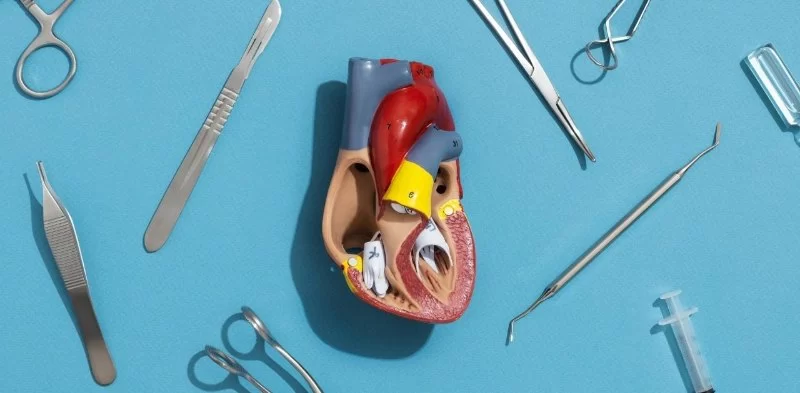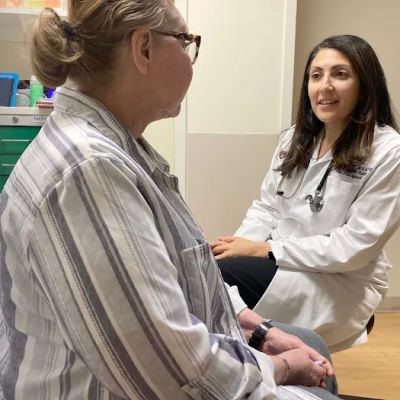- how-your-heart-s-electrical-system-keeps-you-alive
- what-happens-when-the-rhythm-goes-wrong
- types-of-arrhythmias-and-how-they-affect-you
- signs-symptoms-and-when-to-seek-help
- personal-story-living-with-arrhythmia
- how-heartcare-hub-helps-you-manage-your-heart-health
How Your Heart’s Electrical System Keeps You Alive
Your heart isn't just a muscle—it’s an electrical marvel. Inside this fist-sized organ lies a finely tuned system of signals that ensures each beat is timed perfectly. This electrical system starts at the sinoatrial (SA) node, often referred to as the heart’s natural pacemaker. From there, electrical impulses travel through a specialized pathway, triggering contractions in the atria and then the ventricles. This coordination is what pumps oxygen-rich blood throughout your body, beat after beat.

What Happens When the Rhythm Goes Wrong
1. Disruptions in the Circuit
Sometimes, these signals misfire. They may travel too fast, too slow, or in the wrong direction. When this happens, it can lead to a condition called arrhythmia, which simply means an abnormal heart rhythm. Some arrhythmias are harmless and barely noticeable, while others can be life-threatening.
Atlanta Heart Specialists
atlanta heart specialists
4375 Johns Creek Pkwy #350, Suwanee, GA 30024, USA

2. Understanding the Electrical Miscommunication
Think of it like a traffic light system failing in a busy intersection—chaos ensues. The heart can race (tachycardia), slow down unexpectedly (bradycardia), or flutter irregularly (fibrillation). This isn’t just a technical issue—it’s something that can affect your breathing, brain function, and overall wellbeing.
Types of Arrhythmias and How They Affect You
3. Atrial Fibrillation (AFib)
The most common serious arrhythmia in the U.S., AFib occurs when the upper chambers of the heart quiver instead of contracting properly. It can feel like your heart is doing somersaults. Left untreated, it increases the risk of stroke and heart failure.
4. Ventricular Tachycardia (VT) and Fibrillation
These fast, chaotic rhythms begin in the heart’s lower chambers. While brief episodes may go unnoticed, sustained VT or VF can be fatal without immediate treatment, such as a defibrillator shock.
5. Supraventricular Tachycardia (SVT)
A rapid heart rate that originates above the ventricles, SVT often affects younger individuals and can cause palpitations or chest discomfort. Many live with it for years without needing treatment, while others may require medications or catheter ablation.
6. Bradycardia
When your heart beats too slowly, it may not pump enough blood to meet your body’s needs. This can lead to fatigue, confusion, or fainting. In some cases, a pacemaker is needed to keep the rhythm steady.
Signs, Symptoms, and When to Seek Help
Many people with arrhythmias live without symptoms, but others experience warning signs like:
- Fluttering in the chest
- Racing or slow heartbeat
- Shortness of breath
- Dizziness or lightheadedness
- Fainting spells
If you ever feel faint, have chest pain, or notice a sudden change in your heartbeat, it’s important to seek medical attention immediately. Diagnosing arrhythmias often involves an EKG, Holter monitor, or even an electrophysiology study depending on the severity and frequency of the episodes.
Personal Story: Living With Arrhythmia
Sarah, a 38-year-old nonprofit director, began noticing palpitations during stressful meetings. At first, she dismissed them as anxiety. It wasn’t until she fainted while jogging that she saw a cardiologist. She was diagnosed with SVT and, after several lifestyle changes and a minimally invasive ablation, her episodes became rare.
“It was scary at first,” Sarah shares. “But learning how my heart’s electrical system works helped me understand that I wasn’t broken—just out of sync. I’ve taken control of my health, and I’ve never felt more aware of how my body works.”
How HeartCare Hub Helps You Manage Your Heart Health
Understanding your heart’s electrical system is key to making informed decisions about arrhythmias. Whether you're newly diagnosed or managing a known condition, support matters. At HeartCare Hub, we provide access to trusted devices, clinics, and educational tools tailored to your needs. From heart monitors to treatment options, we're here to help you feel empowered, not overwhelmed.






















Deborah Heart and Lung Center
deborah heart and lung center
200 Trenton Rd, Browns Mills, NJ 08015, USA